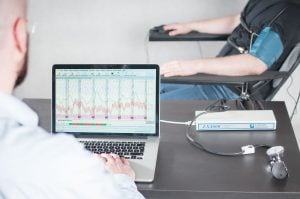Lie detector tests, as they are commonly called, are becoming more popular in the recruitment industry. But what does the law say about Polygraph testing in the UK? Can the results be used in tribunals or courts?
Having been used in the United States for many years, polygraph testing is relatively new to the UK. It has helped in the investigation of crime, particularly when child abuse of paedophilia is involved. However, employers are now turning to the lie detector test to root out dishonest employees, deception in the workplace and theft in all its forms.
Recruitment agencies rely on an excellent reputation for supplying ideal candidates for jobs. Lying or being economical with the truth on a CV can make the difference between a long term client and one who will never use them again. The polygraph test can identify the honesty of candidates seeking work anywhere but particularly in environments where security is paramount.
Lie detector equipment detects physiological responses, such reactions being analysed by highly skilled and qualified examiners. Sensors attached to the subject will monitor changes in the body when questions are asked. These include respiratory changes, increased heart rate, perspiration and movement of the hands when lies are told.
Can Polygraph results be used in tribunals or courts?
Currently there is no legislation that regulates polygraph testing for employers. Few cases have reached court, since if the test result is positive for lying, the dispute tends to be settled out of court.
Until legislation for a universal standard is introduced, lie detector results are unlikely to be relied upon without other evidence. In UK civil courts polygraph evidence is admissible if the judge allows it and considers it relevant. When an employee has agreed to taking the test, the judge won’t usually object to its submission as evidence.
Hence, employers should view the lie detector test as a tool that forms part of a wider investigation into allegations. Tribunals and courts won’t accept these results without other evidence.
Employees who won’t submit to a polygraph testing
If an employee refuses to take a test, employers shouldn’t consider this is sufficient evidence of culpability. Whilst a tribunal may take the refusal into account, devoid of other corroborative evidence it won’t win your case.
However, the cost of taking legal action against a dishonest employee is significantly higher than the cost of a lie detector test. It’s a useful employer and recruiter tool that can save both time and money. Polygraph testing is becoming more popular in this field as an easier way to settle employment disputes. Keep an eye on our blog for updates.
If you would like to know more about the use of lie detector technology in the recruitment and employment industries contact us today.


